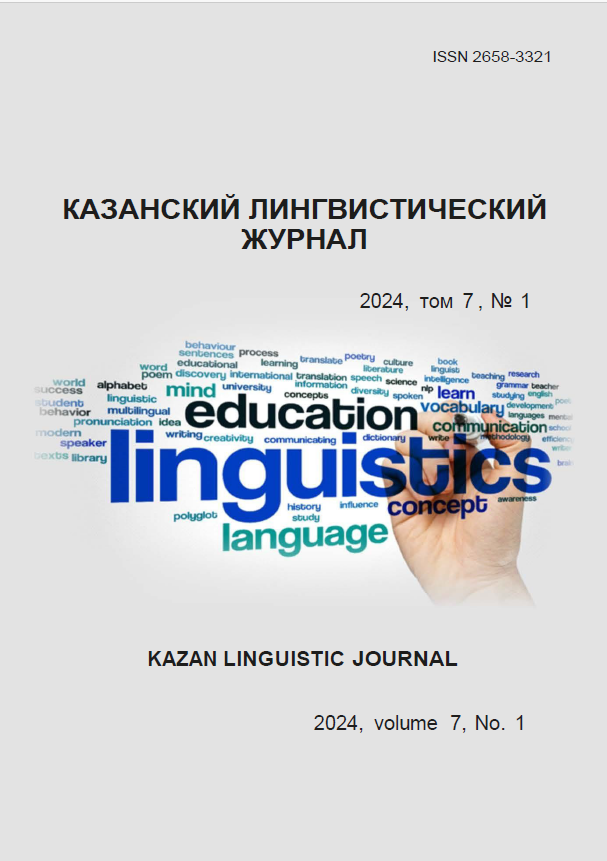Mnemonics for Generation Z in Translation Training (Based on English and Chinese)
https://doi.org/10.26907/2658-3321.2024.7.1.7-18
Keywords:
teaching translation, mnemonics, generation Z, translation skills, memoryAbstract
The article is devoted to the problems of the initial stage of teaching translation to students learning English and Chinese. Despite the fruitful history of the development of translation teaching methodology, there is no competence-based manual developed for this pair of languages. This is the relevance of this study. The authors rely on the methods of teaching interpreting by I.S. Alekseeva for German and by a group of MSU scientists M.V. Verbitskaya, T.N. Belyaeva and E.S. Bystritskaya for English. The goal of the initial stage is to train students to fix and memorise as much and as complete a volume of information as possible for its further reproduction, to form the skill of perception and reproduction of precision vocabulary, to expand and order the working memory of the future professional interpreter. Having studied the peculiarities of the modern generation Z, the authors have made an attempt to develop such mnemonics exercises that systematise the knowledge of both the first and second foreign languages, as well as introduce new language material to study in the course of expanding working memory.
References
References
Howe N., Strauss W. Fourth turning: what the cycles of history tell us about Ameri-ca's next rendezvous with destiny. Broadway Books; 1997. (In Eng.)
Shamis E. What conditions the Millennium and Z generation is growing up in and what their values are. Available from: http://ruge nerations.su [accessed: 18.01.2023]. (In Russ.)
Mironova O.A. Problems and tasks of digital education in Russia in the context of generation theory. Bulletin of the Rostov State University of Economics (RINH)). 2019;1(65):51–63. EDN ZCULPN. (In Russ.)
Sigacheva N.A. Interaction of teachers and students in the digital educational envi-ronment in the process of teaching a professional foreign language. Kazan Linguistic Journal. 2023; 6(1):7–15.
Alekseeva I.S. Professional training of an interpreter: textbook on interpreting and translation interpreters and teachers. St. Petersburg: Izdatelstvo Soyuz; 2004. EDN TTSXLF. (In Russ.)
Voytsekhovich I.V. Collection of additional materials for the textbook "Chineses language. Socio-political translation. Elementary course." Moscow: ООО "IZDATEL’SKIY DOM VKN"; 2017. (In Russ.)
Sheiko A.M. Language technology toolsin translation quality assurance. Kazan Lin-guistic Journal. 2023; 6(2):282–293.
Mukhtarova A.D. Background knowledge in teaching of a socio-political text trans-lation (on the material of the spanish newspapers). Kazan Linguistic Journal. 2018; 1(4):120–134.
Sapa A.V. Generation Z – the generation of the FSES era. Innovative projects and programs in education. 2014;(2):24–30. (In Russ.)






